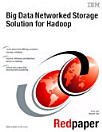Applications of Soft Computing: Recent Trends
Ashutosh Tiwari · Joshua Knowles · Erel Avineri · Keshav Dahal · Rajkumar Roy
এপ্ৰিল ২০১০ · Advances in Intelligent and Soft Computing কিতাপ 36 · Springer Science & Business Media
ইবুক
420
পৃষ্ঠা
reportমূল্যাংকন আৰু পৰ্যালোচনা সত্যাপন কৰা হোৱা নাই অধিক জানক
এই ইবুকখনৰ বিষয়ে
Soft Computing is a complex of methodologies that embraces approximate reasoning, imprecision, uncertainty and partial truth in order to mimic the remarkable human capability of making decisions in real-life, ambiguous environments. Soft Computing has therefore become popular in developing systems that encapsulate human expertise. Applications of Soft Computing: Recent Trends contains a collection of papers that were presented at the 10th Online World Conference on Soft Computing in Industrial Applications, held in September 2005. This carefully edited book provides a comprehensive overview of the recent advances in the industrial applications of soft computing and covers a wide range of application areas, including optimisation, data analysis and data mining, computer graphics and vision, prediction and diagnosis, design, intelligent control, and traffic and transportation systems. The book is aimed at researchers and professional engineers who are engaged in developing and applying intelligent systems. It is also suitable as wider reading for science and engineering postgraduate students.
এই ইবুকখনক মূল্যাংকন কৰক
আমাক আপোনাৰ মতামত জনাওক।
পঢ়াৰ নির্দেশাৱলী
স্মাৰ্টফ’ন আৰু টেবলেট
Android আৰু iPad/iPhoneৰ বাবে Google Play Books এপটো ইনষ্টল কৰক। ই স্বয়ংক্রিয়ভাৱে আপোনাৰ একাউণ্টৰ সৈতে ছিংক হয় আৰু আপুনি য'তে নাথাকক ত'তেই কোনো অডিঅ'বুক অনলাইন বা অফলাইনত শুনিবলৈ সুবিধা দিয়ে।
লেপটপ আৰু কম্পিউটাৰ
আপুনি কম্পিউটাৰৰ ৱেব ব্রাউজাৰ ব্যৱহাৰ কৰি Google Playত কিনা অডিঅ'বুকসমূহ শুনিব পাৰে।
ই-ৰীডাৰ আৰু অন্য ডিভাইচ
Kobo eReadersৰ দৰে ই-চিয়াঁহীৰ ডিভাইচসমূহত পঢ়িবলৈ, আপুনি এটা ফাইল ডাউনল’ড কৰি সেইটো আপোনাৰ ডিভাইচলৈ স্থানান্তৰণ কৰিব লাগিব। সমৰ্থিত ই-ৰিডাৰলৈ ফাইলটো কেনেকৈ স্থানান্তৰ কৰিব জানিবলৈ সহায় কেন্দ্ৰত থকা সবিশেষ নিৰ্দেশাৱলী চাওক।







